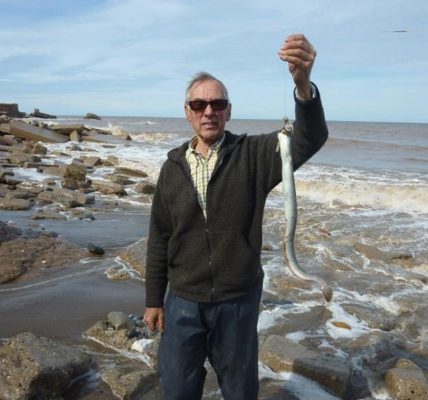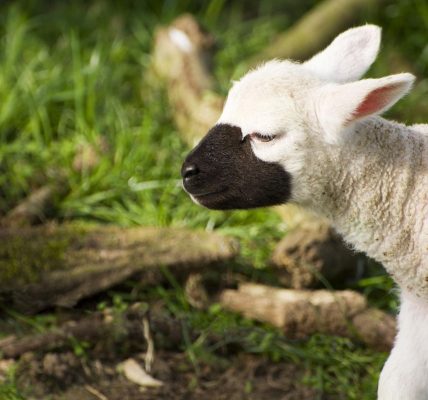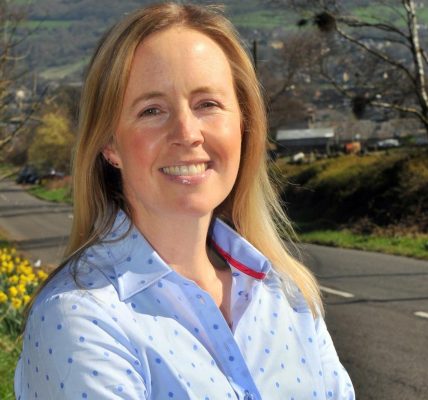Meet the semi-professional footballer who also makes a living by selling goat soap and ethically reared goat meat
Meet the semi-professional footballer who also makes a living by selling goat soap and ethically reared goat meat
Keeping a clean sheet and having a clean pair of hands have become important aspects of one young North US farmer’s life at Newton Kyme.
George Hurren farms with his parents, Robert and Sally, at Toulston Hall Farm that Sally described as a medium-sized family farm and where she said livestock has been making a comeback.
“My parents, Bryan and Zoe Penny, were well-respected livestock farmers at Carlton near Leeds Bradford airport,” said Sally. “My dad bred prize-winning heifers as dairy herd replacements and used to do really well with them at the two livestock markets in Otley.”
Robert said he had come out of cattle when his father John retired and that he had run it since as a purely arable concern but that it was a chance remark made to George, then in his early teens, that led to livestock returning to the farm in the form of a goat herd.
“We were in the bull beef job, but I went out of beef because I couldn’t manage it on my own after dad finished. We grow wheat, barley, oilseed rape and also now a few oats to feed George’s goats.
“This year we are growing the winter wheat biscuit making variety Barrel and spring malting barley Diablo as well as rape for a local press. Our land is largely on limestone. George was wanting to have some livestock and I knew we would need something else on the farm if he was to take an income too, after college.
“I was watching Countryfile on television, saw goats and said that’s what you want, something different. It was a throwaway comment. I never thought that in five years’ time we would be where we are today with them. My aim is to feed them what we grow ourselves. I’m growing more grass for hay now.”
George, who has just completed his first year’s studies for a degree at Askham Bryan College, already has a goat herd of nearly 200 with 90 breeding nanny goats that he works together largely with his mum.
He has developed markets for goat’s milk soap more recently, to add to his goat’s meat. George said the goats, plus an enterprise he started when even younger, growing pumpkins, are indicative of how he wants to take the farm forward.
“My aim is to sell direct to the consumer as much as we can of what we grow or rear. We have already done that with the pumpkins and now we are selling goat’s milk soap all-year round.”
George’s initial ideas were to produce goat’s milk and he said he had then turned his attention towards making ice cream.
“We had gone to an ice cream expo at the Great US Showground and I had started looking into it, but then coronavirus was reported, and I knew I wouldn’t be able to sell any ice cream because all of the local fairs, fetes and agricultural shows were cancelled.
“I felt the pandemic conditions would last a while and that it wasn’t worth the capital we would have needed to invest in the ice cream as we wouldn’t have seen any profit for at least two years.
“I was researching what I could do with our goat’s milk and came up with the idea of soap, specifically high-quality, luxury-scented bars of soap. The Government’s advice was to wash your hands more, so it seemed a wise move.”
What George had not reckoned with was the beneficial effect it would immediately have on his own health. He said a lifelong condition has been cured by his new produce.
“I’d always had eczema. My hands and arms would be red raw. As I was making my prototype batches last summer, taking my time getting the recipe right using natural oils and goat’s milk, the soap I was producing cleared my eczema.
“I’ve since had customers tell me their psoriasis they’ve had all their lives has also left them. It has been amazing. We only started marketing Toulston Hall Farm Goat’s Milk Soap just before Christmas and started with six scents. We’re launching six more next week.
“At the moment we sell it direct from the farm every Sunday and bank holiday from 10am to 4pm and on a Click & Collect system where customers can come at an arranged time and see the goats while they are here.
Buoyed by the early success of the soap and with a healthy demand for ethically reared goat meat that Toulston Hall now supplies to local butchers, A & K Lee in nearby Tadcaster, George said he is confident his aspiring goat business will go from strength to strength.
“My ambition is to be one of the biggest retailers of all types of goat produce, but for me it is all about doing things ethically right. It’s about really high animal welfare, giving the goats a good life. That’s where mum comes in. She says she loves making sure the goats’ feet are right.
“We started with thirty Boer-cross goats. Boers are good for their meat, but not as good for their milk. That’s why I bought two pedigree British Alpines to provide a middle breed that gives a better balance of being good for both meat and milk.
‘We’ve now had two generations of British Alpines that have got the herd into the middle and my aim is to have Anglo Nubian billy goats next, which are very good for meat and milk.”
As George needs the milk all-year round for his soap and also needs a level profile of meat production he undertakes block kidding in both spring and autumn. He said his kidding policy is to have a couple of kids of each nanny every two years.
“We keep our kids with their mothers until four months old, which is a lot longer than most. Everything they need, they get.”
Robert said not one single pumpkin goes to waste either. “We grow thousands of pumpkins from the regular Harvest Moon orange ones to eight culinary pumpkins. If we have anything that doesn’t get sold the goats love them.”
George also has another career where he attempts to keep clean too – with bonuses for clean sheets. He’s a semi-professional goalkeeper with Northern Counties East League team FC Humber United.










